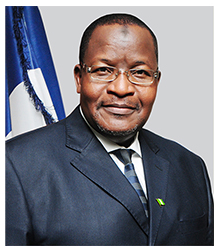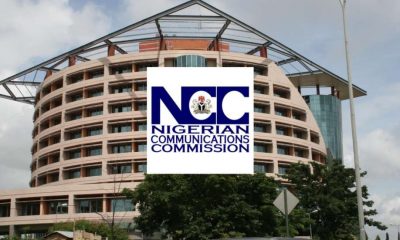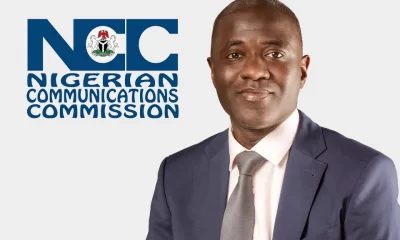NCC
Stakeholders seek NCC, NBC’s merger to grow telecoms
Published
8 years agoon
By
Olu Emmanuel
PLAYERS and stakeholders in the nation’s telecoms sector have urged the new Minister of Communications, Adebayo Shittu, a lawyer, to embark on policies that would consolidate the gains of telecoms sector, which has become an economic enabler. Shittu was among the 36 ministers sworn in by President Muhammadu Buhari into his cabinet to pilot the affairs of the current administration.
Unlike the immediate past Minister of Communications Technology, Mrs. Omobola Johnson, with the knowledge of technology, having studied electronic and electrical engineering and later a consultant to several telecoms and IT-related firms, the current minister is a legal practitioner.
Current industry status
Already, the telecoms sector and Information and Communication Technology (ICT) has grown tremendously in the last 14 years of liberalisation with even better growth starting from 2001 when the country created the Ministry of Communication Technology.
In terms of subscription growth, telecoms’ subscriber base has grown from about 400,000 lines in 2001 to over 150 million as at the end of September this year. Accordingly, teledensity has also revved up from less than one per cent to over 107 per cent during the same period. Available data from industry regulator also indicates that the sector is currently contributing 11 per cent to the nation’s Gross Domestic Product (GDP) and has been identified as economic enabler. Internet users in the country have also increased to over 97 million, according to latest official data.
However, Nigeria continues to grapple with its broadband policy, which targets 30 per cent penetration by 2018. Broadband penetration currently stands at 10 per cent, according to the NCC. Various studies have also identified Nigeria as a profitable investment destination for both local and global investors.
Agenda for new minister
While urging the minster to guard against policy summersault, the President, Association of Telecoms Companies of Nigeria (ATCON), Mr. LanreAjayi, advocated policy directions that address the convergence in technologies being witnessed in the industry. He said: “The minister should look at the possibility of ensuring a converged regulatory body between the NCC and National Broadcasting Commission (NBC) by merging the two agencies.
As a matter of advocacy, it is desirable. What is left now is a matter of policy by government.” Ajayi called for increased efforts toward encouraging on-going policies at deepening broadband penetration “so that we can achieve the 30 per cent target in the next three years.”
He noted that the case of vandalism, fibre cuts, theft of telecoms equipment, frivolous and multiple taxation and delay in Right of Way (RoW) processing must be addressed. Similarly, Chairman, Association of Licensed Telecoms Operators (ALTON), Mr. Gbenga Adebayo, sought increased collaboration between the ministry and the state governments to create conducive environment for the operators to deploy their infrastructures.
Also, a telecoms industry analyst, Mr. Akin Akinbo, said: “I will advise the minister to take his time to study the development in the industry by working with the various agencies under its ministries and stakeholders in the industry so as to build a robust collaboration that sustain the current growth momentum in the industry.”
To the President of Nigeria Computer Society (NCS), Prof. Adesola Aderounmu, efforts at creating an environment that helps government to boost security, create job, retool our econ-omy, among others, should be a priority for the new minister. Consumer-centric Telecoms consumers have also set a list of consumer-centric agenda for the new minister.
According to NATCOMS President, Mr. Deolu Ogunbanjo, critical areas the minister needs to look into include a revisit of the N50 Price Cap Regulation, which has been in effect since 2001 and it is still in use till date.
He said that the minister should, as a matter of urgency, reduce the current unrealistic and exploitative price cap of N50 per minute. He backed the position of ATCON, urging the minister to consider a merger of regulatory authorities in the industry.
Ogunbanjo said that the issue of Poor Quality of Telecoms Services, with particular reference to the vexed issue of dropping/ breaking calls, undelivered but paid for text messages, data services deductions/internet poor quality, unauthorised call credit deductions, all without adequate reward and compensation, should be looked into.
Other such areas NATCOMS want the minister to look into include the restoration of land lines, drastic action against the lingering issue of unsolicited text messages and ensuring that telecoms operators supply subscribers with an irrevocable code to unsubscribe unwanted text messages. Ogunbanjo called on the minister to put in place what he called a ‘Subscriber’s Compensation Policy Plan,’ which will compensate subscribers with free airtime, anytime the telecoms operators perform below the Key Performance Indicators parameters (KPI) as set by the NCC.
“With the above scenario, the Ministry of Communications and its MDA’s must be seen to also protect the Nigerian Telecoms Consumer by standing firm for them through free airtime compensation from time to time in the face Key Performance Indicators impairment.”
Consolidation The new minister would do well by consolidating on the successes already recorded in the telecoms industry by ensuring policy consistency, introducing new forward-looking policy, working with stakeholders and being consumer centric in policy formulation Experts said that all these growth indices have come about due to the formulation of good policies by the ministry and ability to effectively implement some of the policies.
Retrospectively, the strategic harmonisation of all hitherto disparate ICT-related policies by the last administration to provide a focus and proper coordination for the industry has helped to put the industry on the path of consistent growth.
In last 14 years, Nigeria has attracted over $32 billion investment while an investment deficit of over N1.6 billion has been identified by experts.
You may like


NCC, stakeholders to chart new path to effective telecoms regulation


Manufacturing, ICT, other sectors to benefit more from Naira stability–expert


NCC insist on disconnection SIMs SIMs without proper NIN linkage


NCC seeks joint West Africa regional protection of undersea cables


NCC realizes N8.6bn from sales of MVNO licenses


Voice, Data services affected by undersea cable cuts restored–NCC
Trending

 Health & Fitness3 days ago
Health & Fitness3 days agoMalaria Vaccines in Africa: Pastor Chris Oyakhilome and the BBC Attack

 Featured6 days ago
Featured6 days agoPolice reportedly detain Yahaya Bello’s ADC, other security details

 Education1 week ago
Education1 week agoEducation Commissioner monitors ongoing 2024 JAMB UTME in Oyo

 Business1 week ago
Business1 week agoMaida, university dons hail Ibietan’s book on cyber politics

 Aviation5 days ago
Aviation5 days agoWhy some airlines are avoiding Nigeria’s airspace–NAMA

 Business6 days ago
Business6 days agoDebt servicing gulps 56% of Nigeria’s tax revenue, says IMF

 Crime1 week ago
Crime1 week agoPolice take over APC secretariat in Benue

 News6 days ago
News6 days agoOndo APC guber hopefuls reject primary poll

